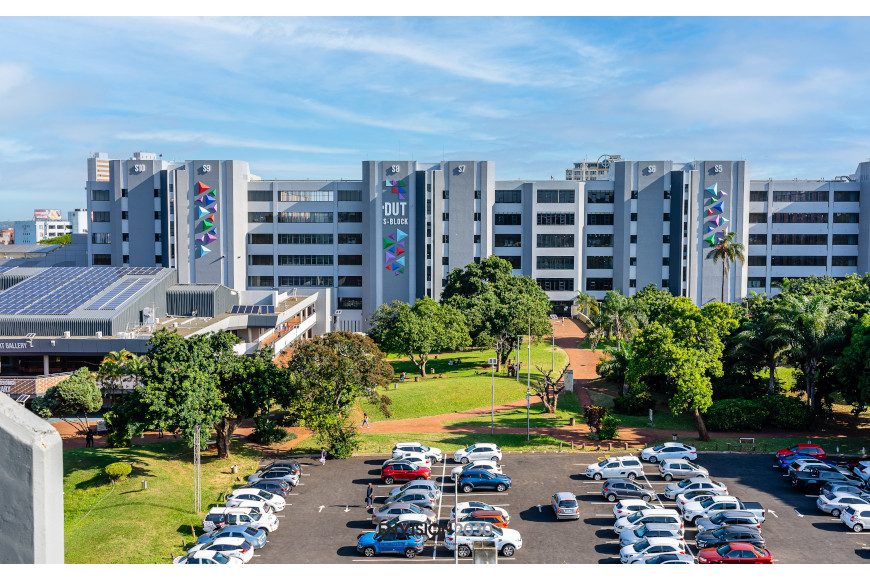The Maritime Studies Department at the Durban University of Technology (DUT) in partnership with the Moses Kotane Institute and the Shangai Maritime University (SMU) will be launching the newly built Navigation Simulation Lab at the Rendezvous Restaurant, Steve Biko campus in Durban on Thursday, 15 August 2024 from 16h00 to 18h00.
According to a Maritime Studies lecturer at DUT, Mr Mthokozisi Manqele, the Navigation Simulation Lab was established after DUT identified a gap in the training facilities for maritime education and training, in particular, a need to upgrade and expand the navigation (ship-handling) simulator to meet higher maritime training standards and needs.
“DUT identified the Moses Kotane Institute (MKI) as a potential partner, being an institution interested in the enhancement of the economy through bridging the scarce skills gap, particularly in the field of Science Technology Engineering and Mathematics (STEM). DUT then presented a proposal requesting for funding assistance from MKI to procure a Navigation (Ship-handling) Simulator with a capacity of 30 stations developed and manufactured by Shangai Maritime University (SMU). MKI considered the proposal and was prepared to assist DUT,” explained Mr Manqele.
The process began after the late Mr Leon Govender who was the Head of Department of Maritime Studies and Professor Suren Singh, Executive Dean in the Faculty of Applied Sciences at DUT visited SMU and saw an opportunity to collaborate with the Chinese university in expanding the DUT navigation simulator capacity.
Prof Singh revealed that the visit by Prof Chen, the President of SMU in 2016, following the IMLA conference led to a long standing relationship between DUT and SMU allowing for student and student mobility for over five years.
“A ship navigation laboratory can significantly contribute to society by advancing maritime safety, efficiency, and sustainability by enhancing maritime safety by developing advanced navigation systems, simulating emergency situations and improving search and rescue operations. It will increase maritime efficiency by optimising ship routes, improve port operations and develop autonomous ship technologies. Lastly, it will support economic growth. By virtue of software students can be taught by simulation of how to navigate anywhere globally,” said Prof Singh.
Mr Manqele said other than securing this deal for simulator expansion, Mr Govender had done incredible work for the Maritime Studies department.
“He single handedly recurriculated and rolled out new programmes in shipping and logistics, and nautical studies that the department is currently offering. He became a pioneer of curriculum renewal, not only in the department, but also in the Faculty and the entire university as we were one of the first, if not the first department at DUT to renew our curriculum to be aligned with the new HEQSF that was required by the government for all universities of technology,” added Mr Manqele.
Speaking on who will benefit from this newly built lab, Mr Manqele said: “All students who are studying for the Diploma in Nautical Studies, particularly those who are in their third-year level of study. They spend the whole semester in the simulator lab and they accumulate at least 80 hours each in the simulated environment before joining the cadetship to go to sea. They are given exposure to ship navigation in a simulated environment to experience various scenarios that they will meet and will have to deal with at sea.”
The Navigation Simulation Lab, which can take up to 60 students will help the teaching staff in fulfilling the Standard of Training, Certification and Watchkeeping (STCW) requirements for seafarer training. It aims to improve the level of knowledge and skills of DUT students in navigation and to provide the university graduates with better opportunities for cadetship in both national and international shipping companies.
“One of the strategic objectives of the DUT ENVISION2030 strategy is to use digital technology to enable staff and students to deliver on their targets. In the Department of Maritime Studies, this directly translates to using the simulator training to meet the learning objectives of the students i.e. to safely navigate ships. Highly trained nautical science students can contribute towards the improvement of their societies by becoming an inspiration for others through professional and responsible conduct,” reiterated Mr Manqele.
Pictured: DUT Steve Biko campus.
Simangele Zuma

